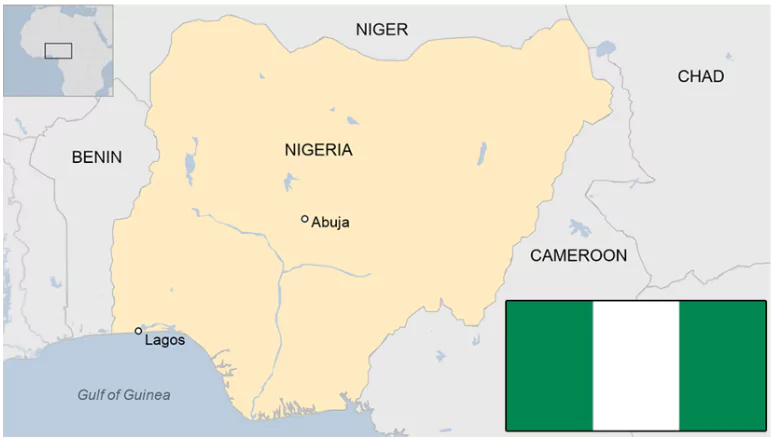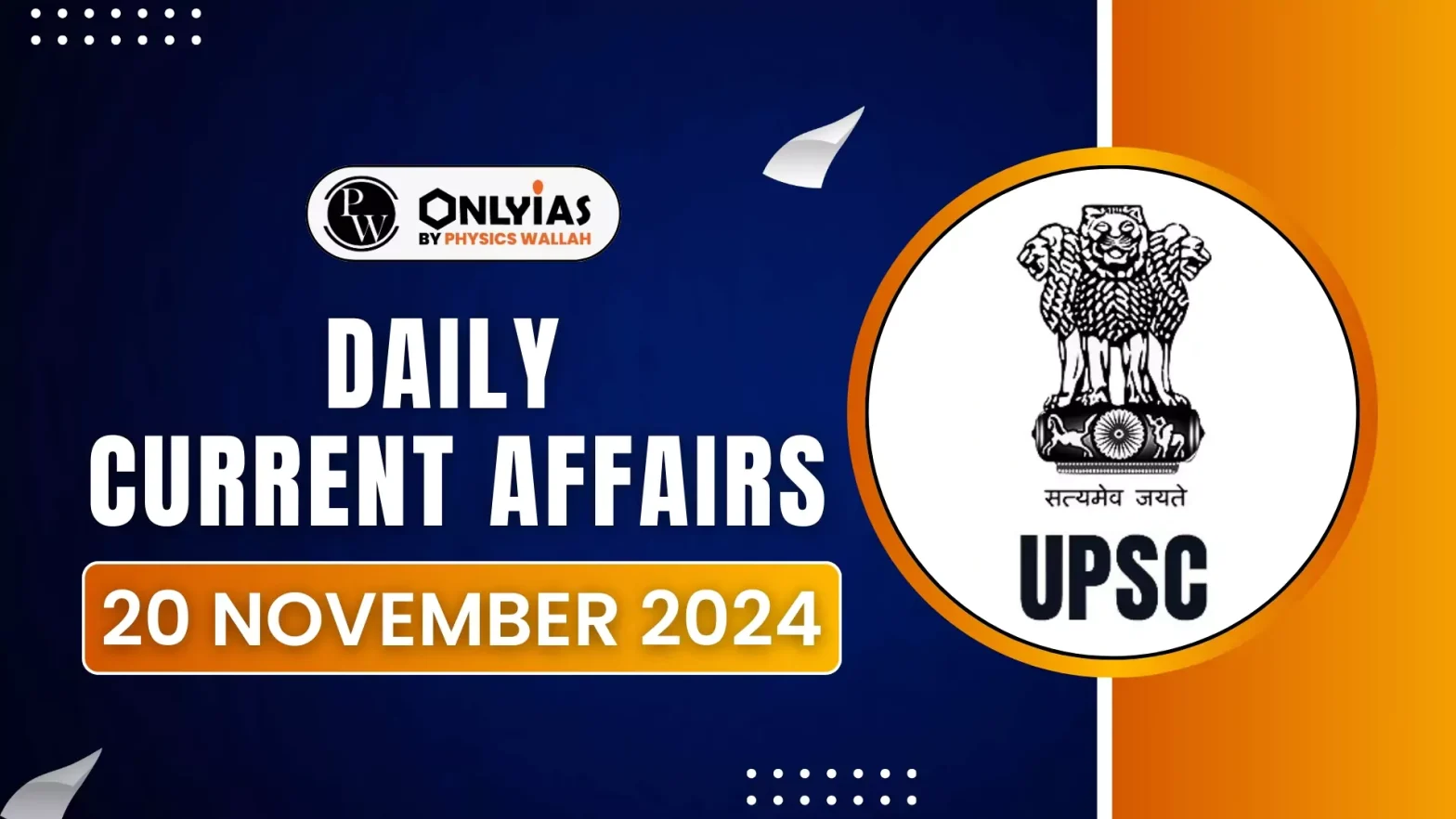Recently, the Indian Prime Minister visited the Federal Republic of Nigeria.
- It is the first Indian Prime Ministerial visit to the country since Manmohan Singh in 2007.
- The first-ever visit by an Indian PM to Nigeria was Jawaharlal Nehru in 1962, followed by Atal Bihari Vajpayee in 2003.
Key Highlights of the PM Modi Visit to Nigeria

- High Level Discussion: PM Modi met President Bola Ahmed Tinubu and held a delegation-level discussion.
- Honor: PM Modi was awarded Nigeria’s national honor, Grand Commander of the Order of Niger, an accolade previously bestowed only upon Late Queen Elizabeth II.
- Outcomes of PM Modi’s Visit
- Strategic Agreement: Six agreements were reached during the visit which would further strengthen the strategic partnership.
- MoUs Signed: Three Memorandums of Understanding (MoUs) were signed during the visit.
- Three MoUs are — on Cultural Exchange Programme, Customs Cooperation and Survey Cooperation.
Enroll now for UPSC Online Classes
India-Nigeria Bilateral Relations
- Historical Ties: India established its diplomatic presence in Lagos in 1958, two years before Nigeria’s independence in 1960.
- Economic and Trade Partnership: India is Nigeria’s largest trading partner, while Nigeria is India’s largest trading partner in Africa.
- India heavily imports Nigerian crude oil, making Nigeria a key energy partner.
- Indian investments in Nigeria are valued at $27 billion, with potential for growth.
- Cultural and Educational Exchange: Indian teachers, doctors, and professionals have contributed significantly to Nigerian society.
- Indian movies and cultural products have been popular in Nigeria since the 1970s.
- Indian Diaspora: Nigeria hosts approximately 50,000 Indians, the largest Indian community in West Africa.
- Military Cooperation: India established Nigeria’s National Defence Academy in Kaduna in 1964 and provided military instructors for nearly two decades.
- Around 27,500 Nigerians have received training in India, including in prestigious institutions like the Defence Services Staff College (DSSC), Wellington.
- Healthcare and Education: India is the top destination for medical care for Nigerians, offering high-quality treatment at affordable costs.
- Maritime and Energy Cooperation
- Security in the Gulf of Guinea has emerged as a new area of collaboration due to potential benefits for maritime security.
- Energy cooperation is vital, as Nigeria supplies 11–12% of India’s crude oil requirements.
Challenges
- Economic Diversification Gaps: Indian relationship with Nigeria is mainly based on the oil export from Nigeria and pharmaceutical and engineering goods from India.
- This lack of diversification increases vulnerability to price and global market trend changes.
- Pending agreements: Critical agreements like Economic Cooperation Agreement (ECA) and Double Taxation Avoidance Agreement (DTAA) have not been concluded which hinders economic collaboration and investment flows.
- Logistical, training, and resource-sharing: India and Nigeria’s defence cooperation face various challenges
- Transport of resources and personnel.
- consistent planning and resource allocation for an effective training program.
- Procuring defence equipment promptly is a hurdle.
- procedural complexities in sharing of technologies and expertise in counter-terrorism.
- Cultural and Educational Exchange: Although the academic exchange is increasing between Nigeria and India, however, Nigeria’s underdeveloped internet infrastructure hinders the full potential of knowledge sharing.
Check Out UPSC NCERT Textbooks From PW Store
Way forward
- Boost Trade and Investment: Increase trade by facilitating business delegations and stronger collaboration.
- It can be done by focusing on new investment areas like agriculture, healthcare, energy, and technology.
- Enhance Defence and Security Cooperation: Promote joint maritime operations and counter-terrorism initiatives.
- Promoting Cultural and Educational exchange: India can strengthen its relation with Nigeria by enhancing cultural interactions.
- It can be done through film festivals, academic linkages, and tourism promotion.
- Bilateral Agreements: To increase trade and investment, India and Nigeria should finalise all pending agreements like Double Taxation Avoidance Agreement (DTAA), Bilateral Investment Treaty (BIT), and Economic Cooperation Agreement (ECA).
![]() 20 Nov 2024
20 Nov 2024


